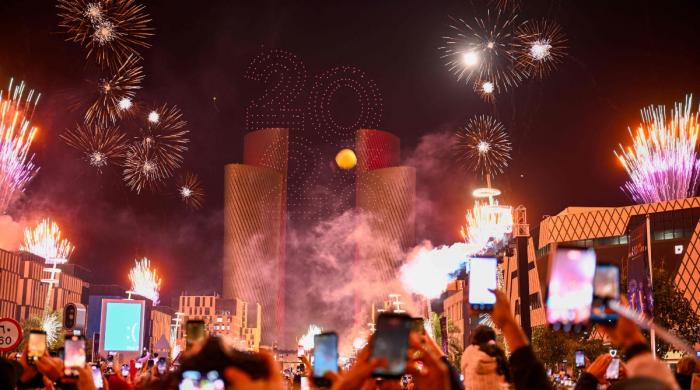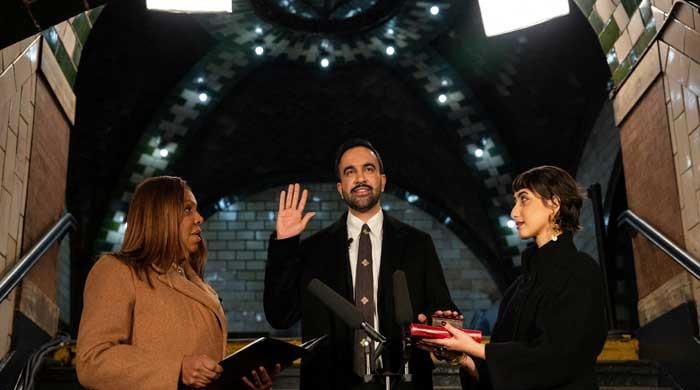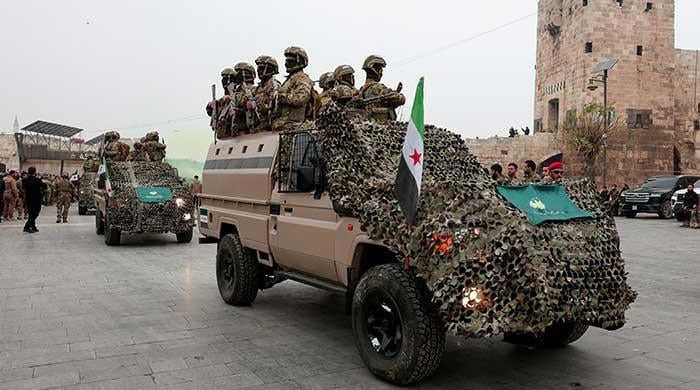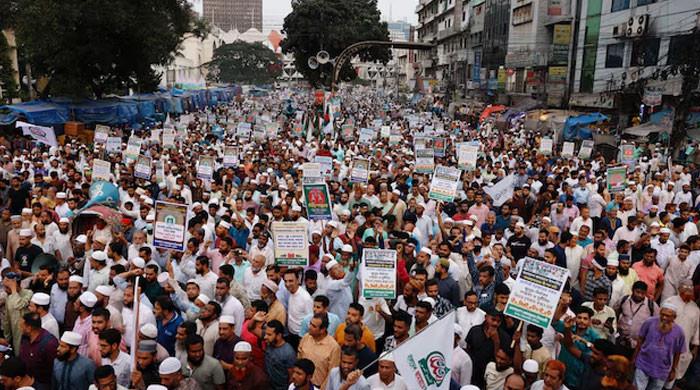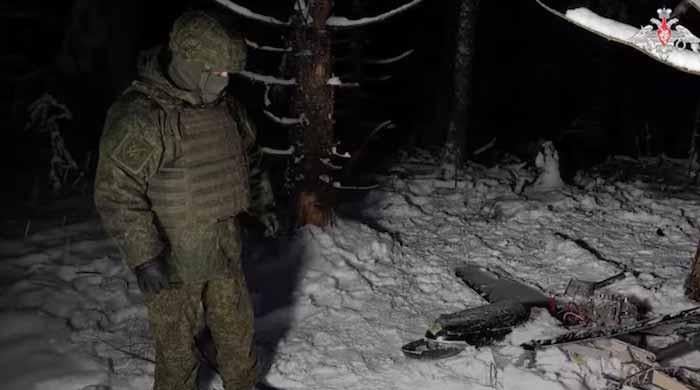WATCH: Angry mob vandalises Sheikh Mujib's statue
Protesters break into celebrations after media reported fall of Sheikh Hasina's government
August 05, 2024
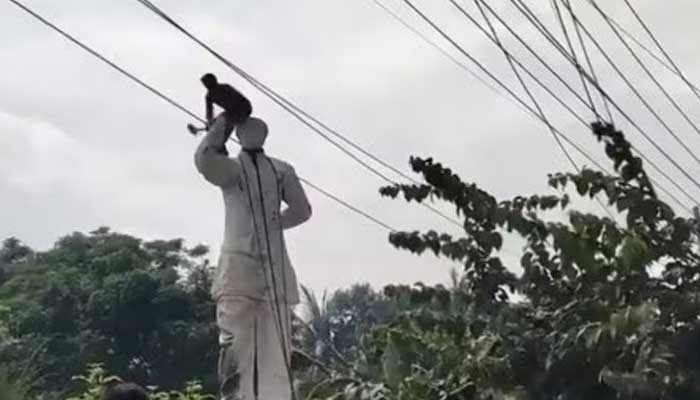
People in Bangladesh poured onto streets in large numbers expressing joy while defying curfew after reports surfaced that Prime Minister Sheikh Hasina had resigned from her office, just a day after almost a hundred people, including 14 cops, were killed.
Army chief General Waker-Uz-Zaman, while addressing the nation earlier today, announced that the 76-year-old prime minister had left the country, adding that an interim government would be formed.
Media reports said she had fled the country on board a military helicopter along with her sister. She is currently in an Indian state.
Law enforcers, including police and soldiers with armoured vehicles, had barricaded routes to Hasina's office with barbed wire.
However, huge jubilant crowds stormed the prime minister's palace in Dhaka while waving flags on the streets of the capital city. People, expressing their exasperation against the Hasina-led rule, broke through the gates of her official residence — 'Ganabhaban'. Television visuals showed people shouting celebratory slogans, while pumping their fists and showing victory signs.
Infuriated people vandalised several statues, pictures and murals of Sheikh Mujibur Rahman, father of Sheikh Hasina and former president of the South Asian country in the capital city.
Visuals of protesters in Dhaka went viral as they climbed atop a large statue of leader, Sheikh Mujib, and began smashing it with a hammer in the head with an axe.
Local media reported that as many as 400,000 people were on the streets after the fall of the Hasina-led government, according to a careful estimate. However, it was impossible to verify the figure.
The Hasina government collapsed on the back of riots — one of the worst in the country's history of 50-odd years.
Almost 300 people were killed and thousands of others injured in the recent violence that started in early July. Sunday became the deadliest as 98 people, including 14 police officers, were killed in the unrest.
The protesters launched their rallies last month, demanding the government abolish civil service job quotas. However, the large-scale demonstrations escalated into the worst unrest of Prime Minister Hasina's 15-year rule, with protesters later calling on the 76-year-old to step down.




